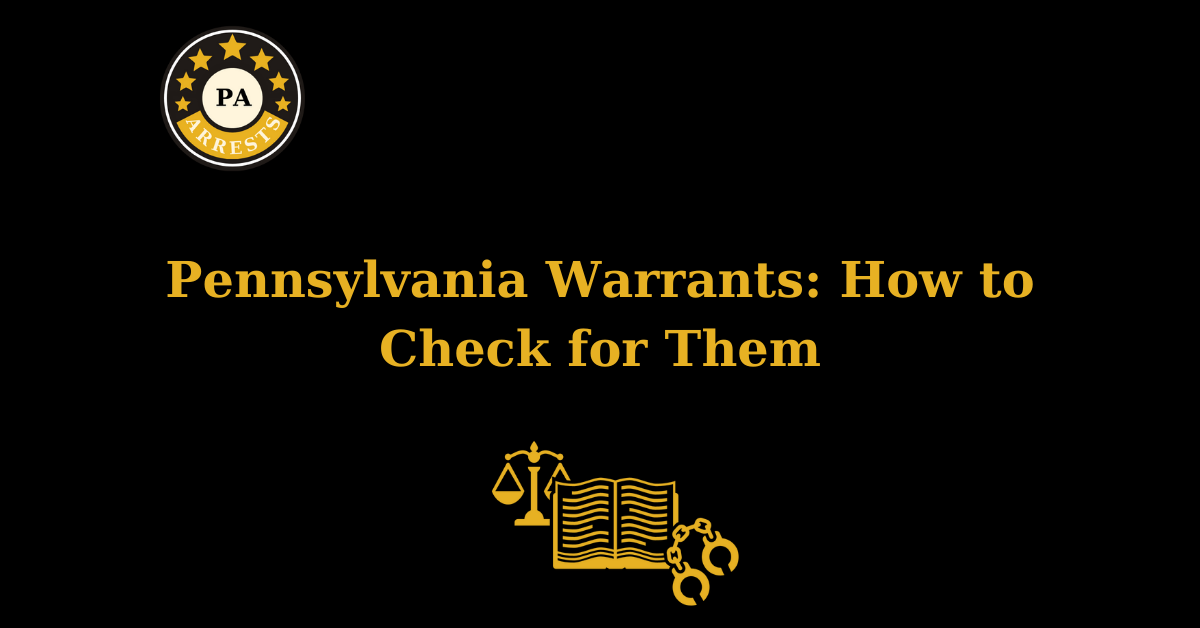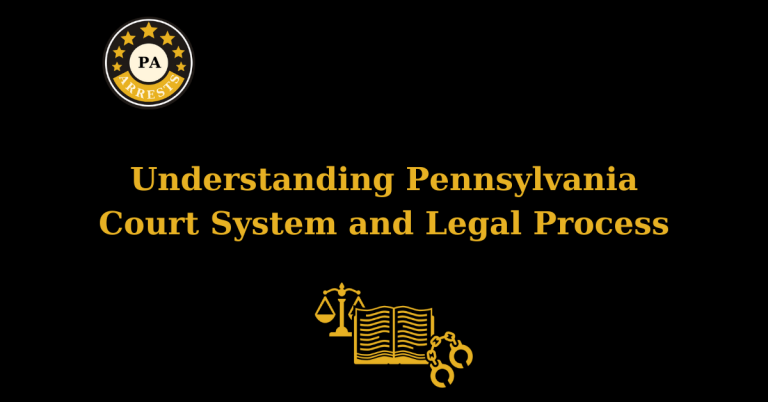Pennsylvania Warrants: How to Check for Them

In this detailed resource, we will provide you with all the information you need to easily check and understand Pennsylvania warrants. Whether you are a concerned citizen, a legal professional, or simply curious about the topic, our guide is designed to be accessible and informative for users of all levels.
Within these pages, you will find a step-by-step process for checking Pennsylvania warrants, along with valuable tips and insights to navigate the system effectively. We understand that dealing with warrants can be a daunting task, but our aim is to simplify the process and empower you with the knowledge you need to stay informed and make informed decisions.
Pennsylvania Warrants
When it comes to Pennsylvania warrants, it is crucial to have a solid understanding of what they are and how they work. In this section, we will delve deeper into the concept of warrants and provide you with key insights.
Types of Warrants in Pennsylvania
In Pennsylvania, there are different types of warrants that serve various purposes. It is important to familiarize yourself with these types to navigate the system effectively. Let’s explore the most common types of warrants you may encounter.
Arrest Warrants
An arrest warrant is issued by a judge or magistrate when law enforcement has probable cause to believe that a person has committed a crime. This section will guide you through the process of checking arrest warrants and understanding the implications.
Bench Warrants
Bench warrants are typically issued when an individual fails to appear in court as required. This section will provide you with valuable information on how to handle bench warrants and the steps you can take to resolve the situation.
Checking Pennsylvania Warrants
Now that you have a grasp of the different types of warrants, it’s time to explore the process of checking Pennsylvania warrants. This section will guide you step-by-step, ensuring you have all the necessary information to proceed.
Online Warrant Search
In today’s digital age, checking Pennsylvania warrants has become more accessible. This section will introduce you to online warrant search tools and provide you with tips on how to use them effectively.
Offline Methods
For those who prefer offline methods or encounter limitations with online searches, there are alternative ways to check Pennsylvania warrants. This section will outline these methods and explain how you can utilize them to stay informed.
Staying Informed and Making Informed Decisions
Dealing with warrants can be overwhelming, but it doesn’t have to be. This section will empower you with the knowledge you need to stay informed and make informed decisions. We will provide you with valuable insights and tips to navigate the system effectively.
Legal Assistance
If you find yourself in a complex warrant situation or require legal advice, it is crucial to seek professional assistance. This section will guide you on how to find suitable legal representation and provide you with resources to aid your search.
We understand that dealing with warrants can be a daunting task, but with this comprehensive guide, we are confident that you will be equipped with the necessary knowledge to navigate the Pennsylvania warrant system effectively. Let’s dive in and empower ourselves!
FAQs
What is a Pennsylvania warrant?
A Pennsylvania warrant is a legal document issued by a court authorizing law enforcement to take a specific action, such as arresting an individual or searching a property. Warrants are typically issued based on probable cause that a crime has been committed. There are different types of warrants, including arrest warrants, search warrants, and bench warrants. Arrest warrants are issued when law enforcement establishes probable cause that a person has committed a crime. Search warrants authorize the search of a specified location for evidence. Bench warrants are issued by a judge for various reasons, such as failure to appear in court. Execution of a warrant allows law enforcement to carry out the authorized action, ensuring due process within the bounds of the law.
How can I check if I have an active warrant in Pennsylvania?
To determine if you have an active warrant in Pennsylvania, you can contact the Pennsylvania State Police or visit their official website. Access the Pennsylvania Access To Criminal History (PATCH) system for criminal record checks. Additionally, you may contact the local law enforcement agency or the relevant court where the warrant may have been issued. It’s crucial to follow official channels and procedures to obtain accurate and up-to-date information on any active warrants.
What should I do if I find out I have an active warrant?
If you discover an active warrant, it’s crucial to stay calm and take immediate steps:
Contact an Attorney: Seek legal advice to understand the situation and your rights.
Verify the Warrant: Confirm details with local law enforcement to ensure accuracy.
Plan Surrender: Arrange a controlled surrender with your attorney to minimize complications.
Document Everything: Keep records of interactions, conversations, and surrendered items.
Appear in Court: Attend court hearings as scheduled to address the warrant professionally.
Cooperate Fully: Follow legal guidance, cooperate with authorities, and adhere to court orders.
Remember, consulting an attorney is essential to navigate the legal process effectively.
Can a Pennsylvania warrant be issued without any evidence?
No, a Pennsylvania warrant cannot be issued without probable cause, which requires presenting sufficient evidence to a judge. The evidence must establish a reasonable belief that a crime has been committed or that the person named in the warrant is involved in criminal activity.
What happens if I ignore a Pennsylvania warrant?
If you ignore a Pennsylvania warrant, it can lead to serious consequences. Law enforcement officials may actively search for you, and if you are found, you may be arrested. It is always advisable to address the warrant as soon as possible with the help of legal counsel.
Can I clear a Pennsylvania warrant without going to court?
No, you cannot clear a Pennsylvania warrant without going to court. Once a warrant has been issued, it is necessary to appear before a judge and address the charges or allegations brought against you. An attorney can assist you in navigating the legal process and representing your interests in court.






